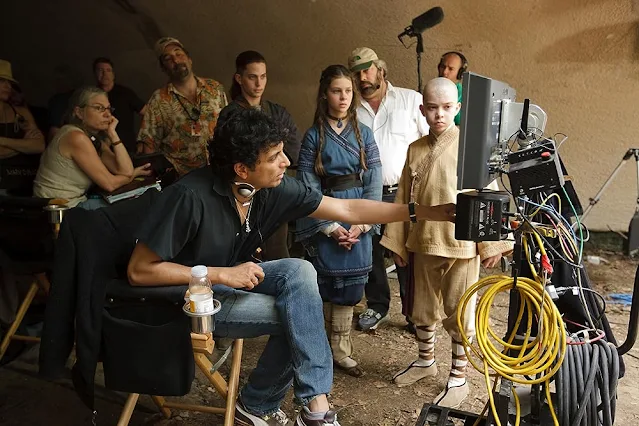How do they elevate the narrative rather than serve as mere gimmicks for surprise?
In this discussion, we will delve into the intricate relationship between the twists and themes in Shyamalan's filmography.
We'll explore how each twist serves as a lens through which the audience can re-examine the story and its characters, adding layers of complexity and depth.
Whether it's the revelation of Dr. Malcolm Crowe's ghostly existence in "The Sixth Sense" or the shocking identity swap in "The Visit," each twist is a carefully crafted narrative device that enhances the film's overarching themes.
"The Sixth Sense" (1999) - Theme: Acceptance and Communication
Twist: Dr. Malcolm Crowe (Bruce Willis) is dead and has been a ghost throughout the film. Relation to Theme: The twist amplifies the theme of acceptance and communication. Dr. Crowe's realization that he's dead allows him to finally communicate openly with Cole (Haley Joel Osment), who sees dead people. This twist adds depth to the theme by showing that acceptance is a two-way street; not only does Cole need to accept his ability, but the ghosts, including Dr. Crowe, also need to accept their reality to find peace.
This twist is up there with Darth Vaders 'No, I am your father' twist from The Empire Strikes Back.
"Unbreakable" (2000) - Theme: Identity and Purpose
Twist: Elijah Price (Samuel L. Jackson) orchestrated the disasters to find David Dunn (Bruce Willis), a real-life superhero. Relation to Theme: The twist ties back to the theme of identity and purpose. Elijah, feeling purposeless due to his brittle bone condition, finds meaning in being the villain to David's hero. The twist redefines the characters and their roles, emphasizing that identity is often a matter of perspective and circumstance.
"Signs" (2002) - Theme: Faith and Coincidence
Twist: The aliens are harmed by water, and the seemingly random events in the film lead to their defeat. Relation to Theme: The twist serves to reinforce the theme of faith and the idea that there are no coincidences. The water, which seemed inconsequential, becomes a weapon, and the asthma of Graham's (Mel Gibson) son saves him from the alien's poison, suggesting that everything happens for a reason.
"The Village" (2004) - Theme: Fear and Control
Twist: Featuring two twists - the "monsters" are fabrications by the village elders, and the village exists in the modern world.
Relation to Theme: The twist directly correlates with the theme of fear used as a tool for control. The elders use the fear of mythical creatures to keep the younger generation within the confines of the village, mirroring how fear can be weaponized to maintain power structures in society.
"Split" (2016)
Twist: The film exists in the same universe as "Unbreakable," and Kevin (James McAvoy) is another superhuman. Relation to Theme: The twist extends the theme of trauma and survival by connecting it to a larger universe where these themes are explored through the lens of superhuman abilities. Kevin's multiple personalities are a result of childhood trauma, and his superhuman "Beast" personality is a twisted form of survival.
The Visit (2015)
Twist: The elderly couple aren't the grandparents but escaped mental patients. Theme: Trust and the danger of appearances are central to this film. The twist serves to caution the audience about taking things at face value and challenges our assumptions about family and trustworthiness.
Old (2021)
Twist: The beach ages people rapidly because of the rocks surrounding it, and it's all part of a pharmaceutical experiment. Theme: The film grapples with the human fear of aging and the passage of time. The twist reveals a dark underbelly of scientific experimentation, questioning the ethics of sacrificing a few for the potential benefit of many.
















